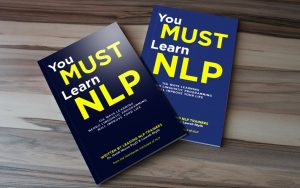It used to be that people only sought the help of a therapist when they were referred by a doctor because something was wrong and it took months and months, even years and years to feel benefit of the therapy.
Times have changed my friend, times have changed. With the development of brief-therapies, people are learning more about how the mind works and how tools like Neuro Linguistic Programming (NLP) can facilitate change at a rapid pace.
So, if you have a calling to a helping profession, but actually want to help others – then NLP is worth looking into. Let me tell you more.
As an NLP Therapist, you will be able to assist people with a range of issues including depression, anxiety, addictions, fears, lack of confidence, procrastination, negativity, lack of motivation, communication issues and more. As you can see – similar topics to what a traditional counsellor or therapist may help someone with, but more breadth and in a much quicker timeframe.
NLP is the study of excellence, modelled after three prime therapists in the 1970’s that all worked directly with the unconscious mind; this is the part of your mind that actually runs your body, emotions, reactions and more! In fact, as an NLP Therapist, your job is to understand how the language of your clients mind has created and how it triggers patterns and programs unconsciously. As an NLP Therapist, you are less interested in what the story of your client is and more interested in how the story evolved.
You’ll identify where your client is and what they want by a variety of specialised questions aimed at uncovering what has been distorted, deleted and generalised by the conscious mind. Through questions again, you’ll begin to understand what is holding your client back, or interfering with their progress to reach their desired state. This might mean finding unresourceful habits, behaviours, patterns of thoughts emotions or actions. And, you’ll identify what resources your client requires, for example your client may need more confidence, self- belief or a voice.
Then, once we have an understanding of all of that – you will then use a variety of tools that you’ll learn as an NLP Practitioner and Master Practitioner that will help you to clear and transform any interferences while also accessing and building resources your client needs.
And the best thing – you will be working with your clients unconscious mind to make the changes. This bypasses the need for a pure talk-therapy formula and starts creating action and movement right away.
Generally, an NLP Therapist will work with a client in 6-12 one hour sessions, staying well within the limits of traditional brief therapy which is deems as anything less than 20 hours.
No previous training is required to start your journey at becoming an NLP Therapist – generally, your study will span for about 12 months and then you can begin your full or part time career as an NLP Therapist.







